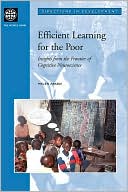Category Books
- Fiction Books & Literature
- Graphic Novels
- Horror
- Mystery & Crime
- Poetry
- Romance Books
- Science Fiction & Fantasy
- Thrillers
- Westerns
- Ages 0-2
- Ages 3-5
- Ages 6-8
- Ages 9-12
- Teens
- Children's Books
- African Americans
- Antiques & Collectibles
- Art, Architecture & Photography
- Bibles & Bible Studies
- Biography
- Business Books
- Christianity
- Computer Books & Technology Books
- Cookbooks, Food & Wine
- Crafts & Hobbies Books
- Education & Teaching
- Engineering
- Entertainment
- Foreign Languages
- Game Books
- Gay & Lesbian
- Health Books, Diet & Fitness Books
- History
- Home & Garden
- Humor Books
- Judaism & Judaica
- Law
- Medical Books
- New Age & Spirituality
- Nonfiction
- Parenting & Family
- Pets
- Philosophy
- Political Books & Current Events Books
- Psychology & Psychotherapy
- Reference
- Religion Books
- Science & Nature
- Self Improvement
- Sex & Relationships
- Social Sciences
- Sports & Adventure
- Study Guides & Test Prep
- Travel
- True Crime
- Weddings
- Women's Studies
Efficient Learning for the Poor: Insights from the Frontier of Cognitive Neuroscience » (New Edition)

Authors: World Bank
ISBN-13: 9780821366882, ISBN-10: 0821366882
Format: Paperback
Publisher: World Bank Publications
Date Published: June 2006
Edition: New Edition
Author Biography: World Bank
Book Synopsis
Large-scale efforts have been made since the 1990s to ensure that all children of the world go to school. But mere enrollment is not sufficient, students must become fluent in reading and calculation by the end of grade 2. Fluency is needed to process large amounts of text quickly and use the information for decisions that may ultimately reduce poverty. State-of-the-art brain imaging and cognitive psychology research can help formulate effective policies for improving the basic skills of low-income students.
This book integrates research into applications that extend from preschool brain development to the memory of adult educators. In layman's terms, it provides explanations and answers to questions such as:
Why do children have to read fast before they can understand what they read?
How do health, nutrition, and stimulation influence brain development?
Why should students learn basic skills in their maternal language?
Is there such a thing as an untrained teacher?
What signs in a classroom show whether students are getting a quality education?
How must information be presented in class so that students can retain it and use it?
What training techniques are most likely to help staff put their learning into use?
This book would be useful to policymakers, donor agency staff, teacher trainers, supervisors, and inspectors, as well as university professors and students.
Table of Contents
| 1 | The pedagogy of poverty | 3 |
| 2 | Health, nutrition, and cognitive processing | 11 |
| 3 | Nervous sytem linkages with school performance | 21 |
| 4 | Memory and basic skills acquisition | 24 |
| 5 | Literacy acquisition and the biology of reading | 36 |
| 6 | Why mother-tongue instruction improves achievement | 50 |
| 7 | The development and teaching of numeracy | 58 |
| 8 | The cognitive effects of classroom events | 62 |
| 9 | Which instructional methods are most efficient? | 73 |
| 10 | Use and wastage of instructional time | 80 |
| 11 | A textbook for every student to take home | 89 |
| 12 | Improving instructional support | 93 |
| 13 | Student grouping and class size effects | 102 |
| 14 | Teacher incentives and motivation | 115 |
| 15 | Performance and training of educators | 123 |
| 16 | The seven pillars of basic skills for all | 132 |
| Annex | Cognitive neuroscience basics for education | 141 |
Subjects
 Educational Theory, Research & History
Educational Theory, Research & History  Psychology of Education
Psychology of EducationEducation & Teaching
 Literacy
Literacy  Functional literacy
Functional literacyEducation & Teaching
 Literacy
Literacy  Literacy -> Developing countries
Literacy -> Developing countriesNonfiction
 All Nonfiction
All Nonfiction  Education - General & Miscellaneous
Education - General & Miscellaneous
